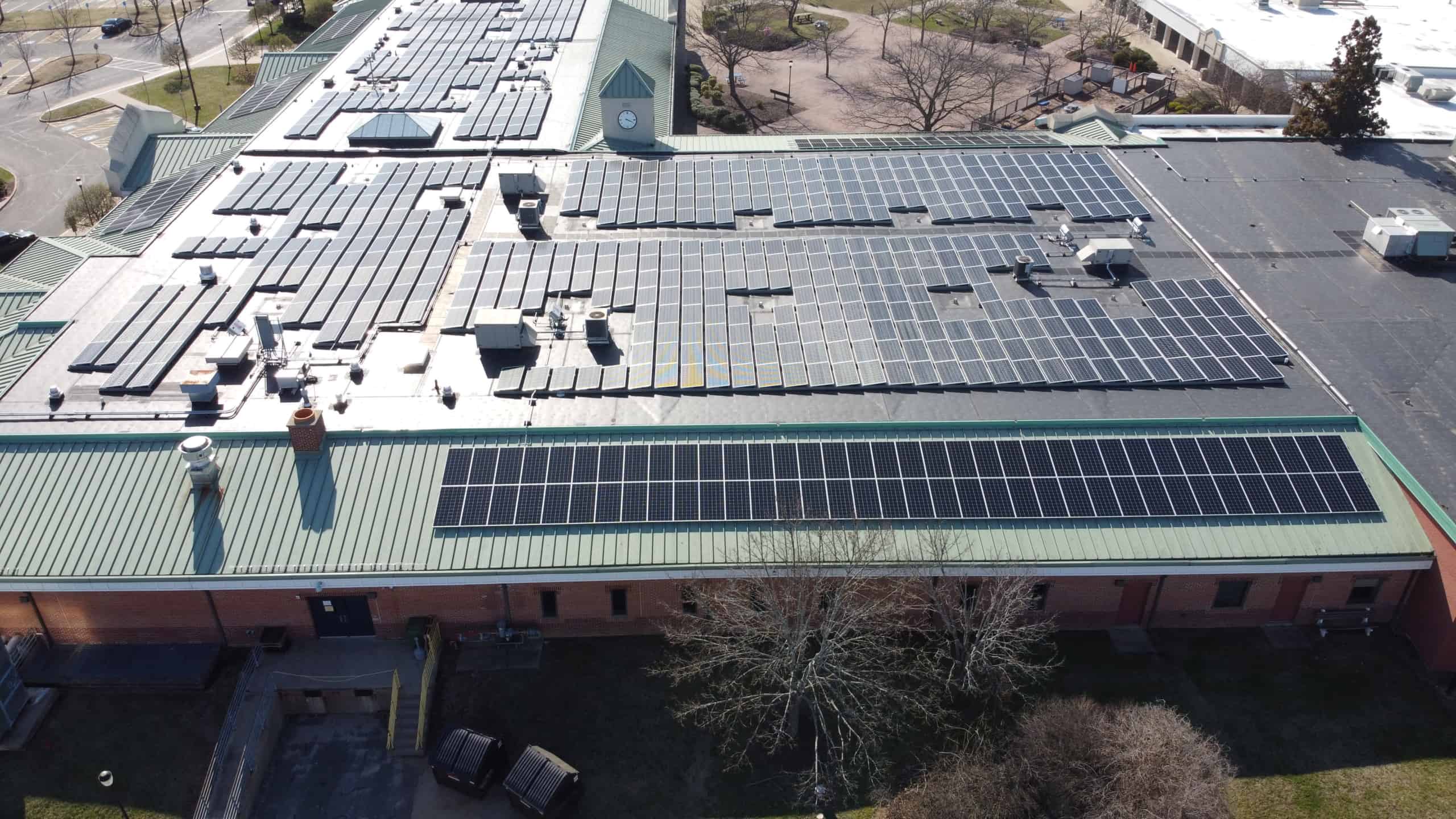In 2018, Connecticut legislators passed a policy to dismantle net metering for renewable energy sources. Despite widespread, proven successes in our state and others, regulatory policies did away with net metering, sending ripples throughout Connecticut’s thriving solar industry. In this post, we’ll examine what that means for existing solar customers and organizations that are considering transitioning to solar, as well as the outlook for the future.
What Is Net Metering?
Straightforward solutions are often the smartest, and that’s one of the key strengths behind net metering plans. Net metering offers a simple way to credit your organization for the electricity your renewable energy system generates but you don’t use. It creates a mutually beneficial relationship between traditional utility providers and renewable energy producers.
Net metering works by connecting your solar energy system to the power grid. Your system generates electricity and distributes power throughout your facility as needed. If any excess power is created but not immediately consumed, that power feeds back into the larger electrical grid, where it’s redistributed. Your power meter either tracks how much electricity your system feeds back into the grid to reduce your monthly electric bill, or your utility provider offers you credits for when your system uses grid-generated power.
Ultimately, net metering allows you to minimize monthly payments for your electrical infrastructure. By crediting you for unused electricity, net metering policies ensure no electricity goes to waste, while reducing the overall cost of a solar investment.
What Opponents Say
Opponents of net metering argue it’s an inefficient way of generating electricity. Because it requires fitting your electrical system with a two-way electrical meter, taxpayers absorb the cost of installing net metering equipment. However, less than 5 percent of electricity in Connecticut is derived from renewable sources, and the cost of installing net metering equipment is minimal. At the same time, by tapping in to renewable sources, especially during the peak heat of summer, electricity providers can offer lower rates for every customer, offsetting the cost of net metering equipment while benefiting everyone.
Net Metering Alternatives
If your solar energy system was established before last year’s legislation, you can continue to receive net metering credit through Dec. 31, 2039. These “grandfathered” customers can continue using their solar energy systems as they have for the next couple of decades, presumably for the remaining lifespan of their existing installations. However, if you’re not one of these customers, you do have some alternatives.
Although the details haven’t been hashed out, utility companies will provide lower electrical rates—referred to as tariffs—that are paid to solar customers for excess power generation. If you want a more concrete solution, you can explore installing an electrical storage system at your facility. Instead of feeding excess energy back into the grid, battery storage systems allow you to store the energy until your facility needs it. While this doesn’t benefit the larger community, a solar battery storage system ensures no electricity goes to waste, while helping you get the most out of your solar investment.
Outlook for the Future
The dismantling of net metering in Connecticut has generated a notable amount of controversy. Solar proponents argue that net metering creates jobs and benefits the broader community by encouraging homeowners and businesses to transition to solar. Opponents of net metering say the cost to taxpayers is greater than the benefits.
While it remains to be determined how utility companies will compensate renewable energy producers for electricity, now is still an ideal time to transition to an energy efficient solar system. With robust solar financing options and incentives such as the federal investment tax credit (ITC) still available for the next several years, now is a better time than ever to deploy a turnkey solar panel system at your facility. From our perspective, the dismantling of net metering is a slight disruption, but with the solar industry thriving in Connecticut, the future looks bright.
Connecticut’s Commercial Solar Experts
Whether you want to learn more about the impact changes in net metering have had on the solar industry, or you want to schedule a free solar project consultation, contact the solar experts at Verogy today. Because we stay ahead of the latest financing options and incentives, we’ll leverage the market to get you the best value in the solar industry.




